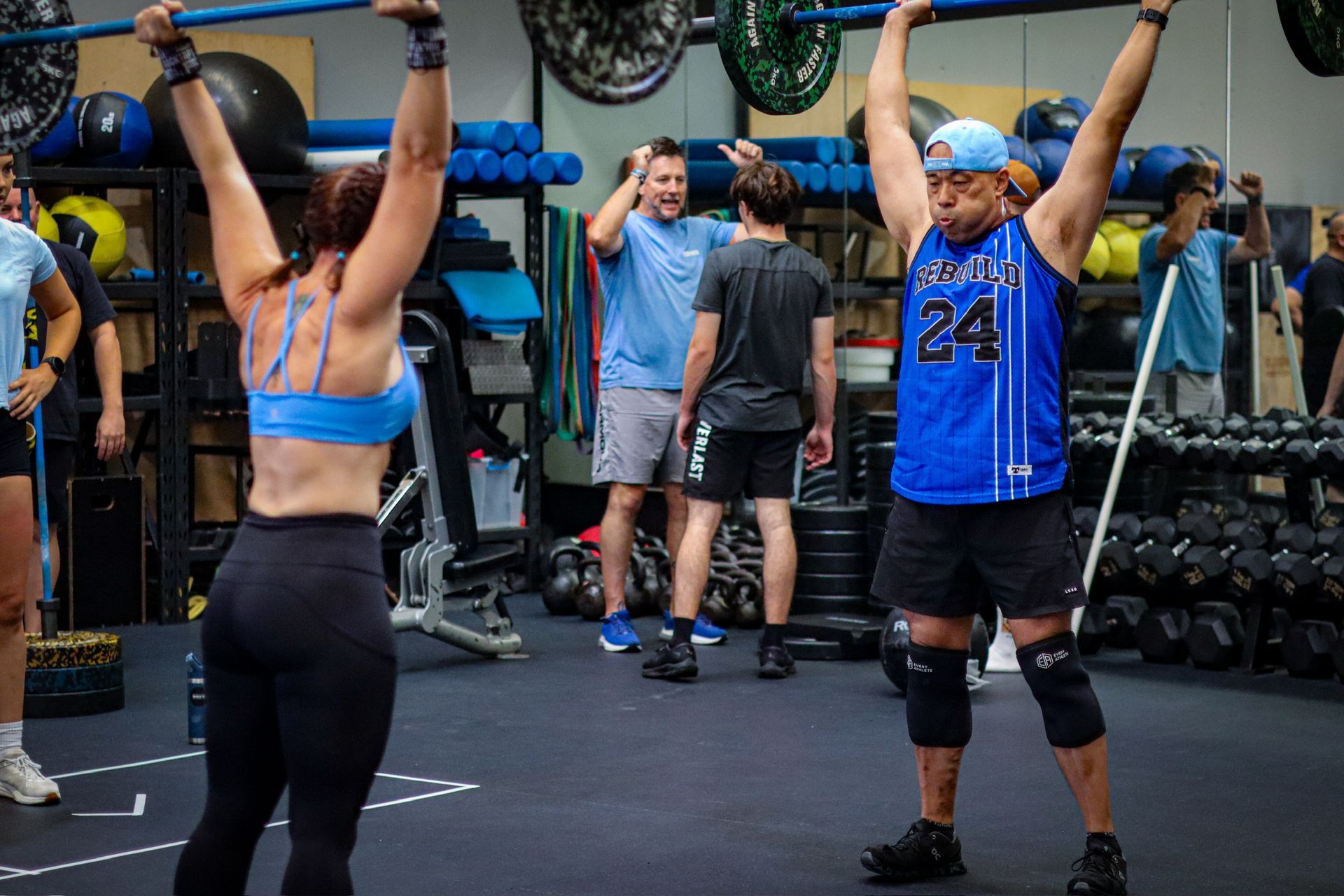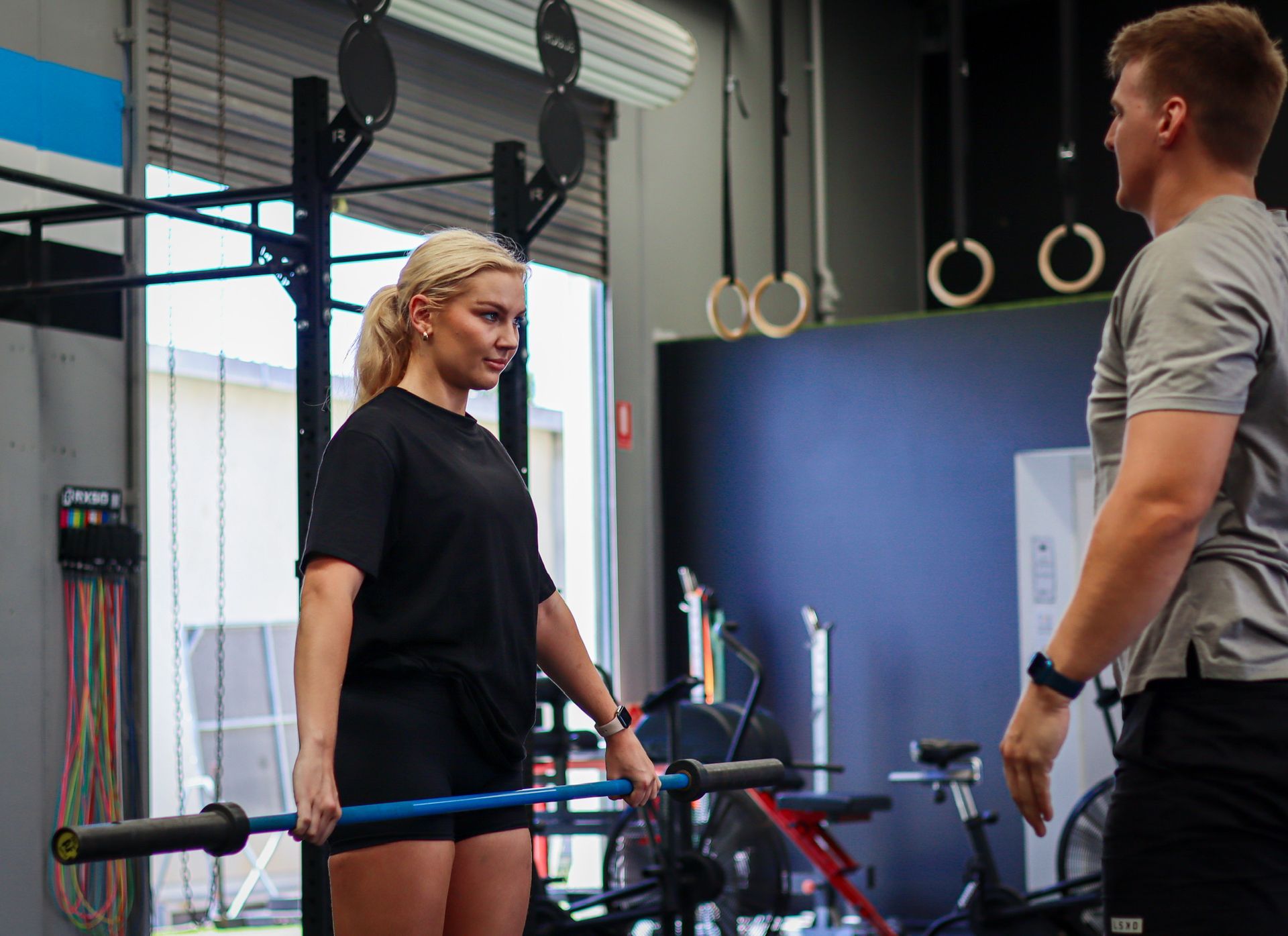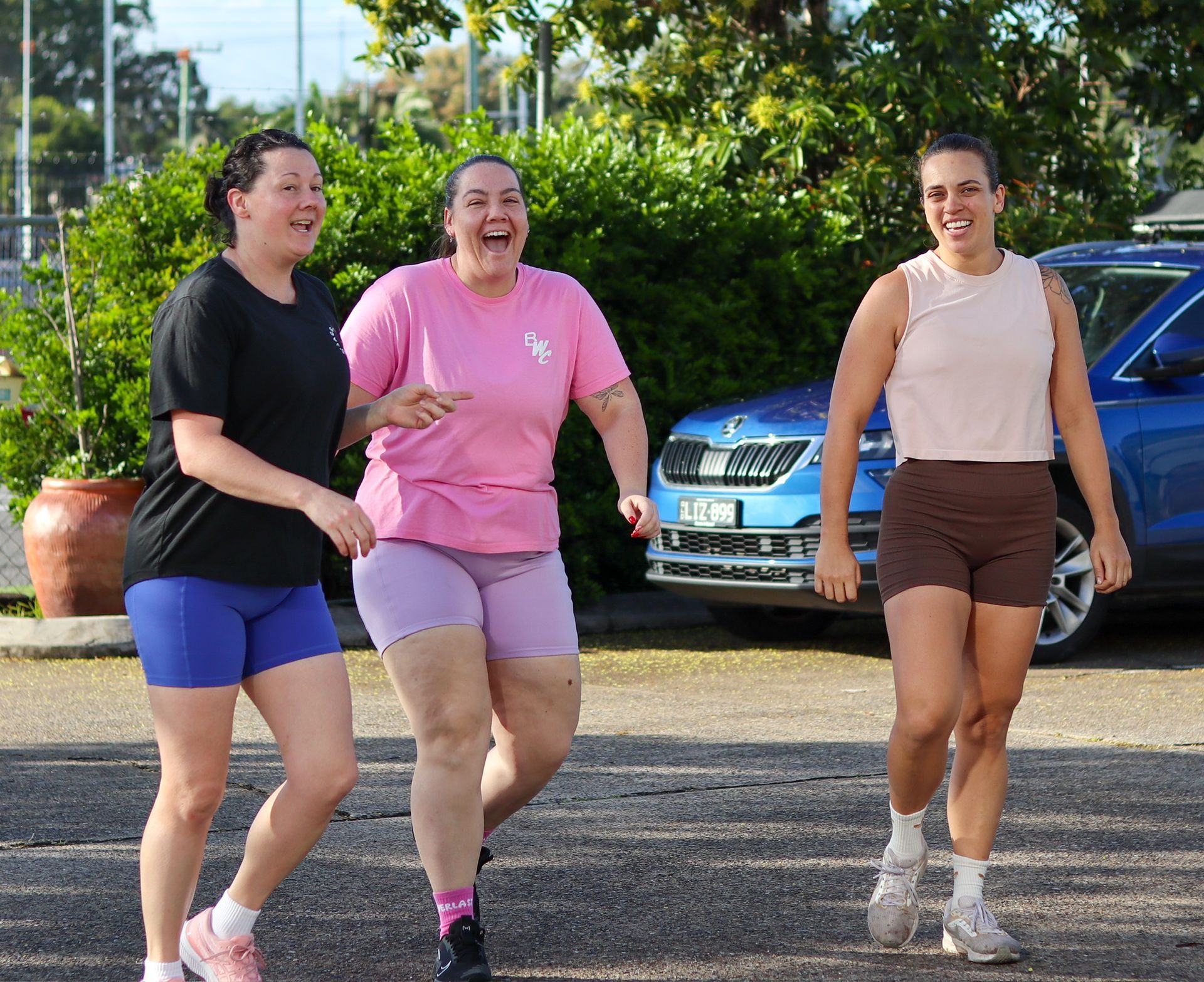What Progress Truly Looks Like And How To Achieve Your Goals
'It's putting off what you want in the moment, for what you want most.'There may come times in your health and wellness journey where you plateau, or struggle to hit your goals. It happens to plenty of people, they work and work but struggle to see results or achieve the goals they set out to reach. So how do you overcome roadblocks and hurdles and ensure the road to success? There are some steps you can take to ensure you get to where you want to go. James and Sean speak about it on episode 26 of season 2 of the Rebuild Health and Fitness podcast, to help you reach your goals. Here's what you need to know. Unknown roadblocksWhether that’s falling sick, an important commitment, or any setback that causes a sudden hindrance to your goal – sometimes it’s inevitable and how you power through is what defines the sort of person you are.“You will get stuck, you can set amazing goals, but you need to understand that things will come up that you didn’t plan for and they’re going to get in your way, side-track you and how you respond to it will be the determining factor to whether you will succeed or not,' says Sean. 'We see it with covid popping up everywhere, these mini setbacks that you don’t plan for and the next thing you know is that you’re testing positive and suddenly you don’t know what to do anymore.' Stockdale ParadoxWhile it’s important to have this big goal that you want, there will always be smaller steps you need to take. And while that’s being thought of, it's equally important to have faith in yourself and belief that you will come out stronger.Sean explains the Stockdale Paradox fits in well with the discussion of goal setting, setbacks, and progress. “The Stockdale Paradox refers to your ability to retain the faith that you will prevail at the end regardless of the difficulties but at the same time, confront the most brutal facts of your current reality, whatever they might be. You can have this really good goal you want to hit but because of your current situation, you will get there but it’ll just take you longer. People get too hung up on getting stuck in the mud when they face difficulties.” Motivation and disciplineSean believes you shouldn’t let not having motivation be the thing that keeps you from progressing forward. “One of the early roadblocks people fall into is a drop in motivation. I think understanding that motivation is one of those things that gets you going but commitment to your core keeps you going.”He outlines two types of motivation: Intrinsic motivation is where you’re motivated by personal reward, or where you’re performing an activity for its own sake. For example, when people go for runs because they enjoy the feeling that running gives them, they’re not going on runs to avoid some sort of punishment.Extrinsic motivation is where you’re motivated to earn a reward or to avoid punishment. For example, when someone is training to win a gold medal, or when you’re training to be someone else, you’re not doing it for yourself.Sean adds, “I think some extrinsic goals are fine but if you're truly going to be successful long-term, you need to have a decent reason from within yourself that motivates you and pulls you back when you’re questioning whether you want to put in this effort or not. Effort is required and just because you’ve got simple tasks doesn’t mean you don’t need to put in effort.”For him, discipline really defines you as a person and is the key indicator to whether or not you will be successful. “Having that little bit of control and discipline around key behaviours and actions will be the biggest indicators of success. You can never fully get what you want out of life unless you have some discipline and make some sacrifices in life. Some of those sacrifices aren’t terrible ones but may just be some ingrained habits that you've had and may make you feel weird when you drop it,” he says. Making tough choices and doing things you don’t enjoy In life, nothing comes to us easily. There’s always a certain amount of discomfort required to reach a goal or to make progress from your current state. Though this might make the process tougher, and to a certain extent might slow things doing, what you need to focus on is the end result. Sean prefers to live a life satisfaction knowing he’s worked his way up on the success ladder, despite all the painstaking hard work that’s gone into it. “At some stage in your journey you need to do things you don’t enjoy, you need to lift weights, you need to put in the steps, you need to get your heart rate up, or you’ll either suffer the consequences or the brutal reality of you not achieving your goals. I’d rather suffer on my own terms doing things that will make me a better person, or stronger, or fitter, or suffer the consequences of me being lazy and not willing to make those sacrifices.”James says it's all about choices. “With all this, it comes back to your choices, you can always make choices around your goals and the sacrifices you make. I don’t want to make it sound like people aren’t trying hard enough, it may not be your fault that you’re in the position that you are in right now but, it’s 100% your responsibility to fix this. That small step of taking some sort of action is the first step you can take into making progress towards your goals,” adds James.
Previous Blogs




